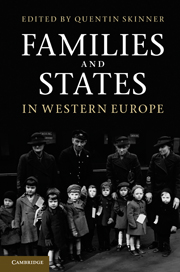6 - Italy
Published online by Cambridge University Press: 05 June 2012
Summary
In March 2008, the government of Romano Prodi, which for two years had been dependent upon a fragile coalition of centre-left parties, fell from power. New national elections in the spring resulted in Silvio Berlusconi's third term in office, this time with a very comfortable parliamentary majority. The crisis of Prodi's government was thus an important turning point in Italian politics and its dynamics are of considerable relevance to the themes of this chapter. The politician principally responsible for the crisis was a local power broker and Catholic politician, Clemente Mastella, a corpulent but energetic figure with darting eyes and a certain natural cunning. Mastella can with safety be called an archetypical figure of the European south. His party, strongly rooted in one southern region only, Campania, had polled just 1.4 per cent of the national vote. However, this had been sufficient, thanks to the system of proportional representation in operation at the time, to give him power of veto over Prodi's unwieldy coalition government. Indeed, so important was Mastella to Prodi that he was nothing less than minister of justice.
The crisis had broken in January 2008, when various of Mastella's closest political collaborators were arrested and accused of distorting normal administrative practice by means of corruption, extortion and intimidation. His wife, Sandra Lonardo Mastella, whose political career Mastella had assiduously cultivated, was placed under house arrest. The details of the accusations evoke long-standing practices in the Italian state.
- Type
- Chapter
- Information
- Families and States in Western Europe , pp. 106 - 128Publisher: Cambridge University PressPrint publication year: 2011
- 2
- Cited by

